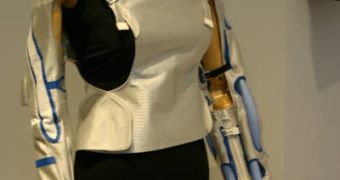No one needs to tell you that the human brain is an amazing machinery, but experts were recently puzzled when they learned that the cortex of amputees created a neural map of the prosthetic limb attached in the place of the lost one. Essentially, this means that the human brain seeks to make the best possible with what it has, and facilitates the control of such a device to the greatest extent possible. Once the neural map of the motor action is created, the mind sticks to it in very much the same way a driver uses the same route to commute to work every single day.
The research, conducted by scientists at the University of California in Berkeley (UCB), comes to offer scientific background to the saying “Practice makes perfect,” which also refers to developing neural maps of the target activity. In their experiments, the researchers used macaque monkeys, whose brains were hooked up to a computer. This allowed them to move a cursor to an indicated location, using the power of brain waves alone. The map of the motor action allowed them to complete this task with great proficiency in time, as the brain always resorted to it, and it alone for the job.
“When your own body performs motor tasks repeatedly, the movements become almost automatic. The profound part of our study is that this is all happening with something that is not part of one's own body. We have demonstrated that the brain is able to form a motor memory to control a disembodied device in a way that mirrors how it controls its own body. That has never been shown before,” UCB Assistant Professor Jose Carmena, the principal investigator of the new study, explains. He works in the university's Department of Electrical Engineering and Computer Sciences, in the Helen Wills Neuroscience Institute, and in the Program in Cognitive Science.
The study brings hope to millions of people worldwide suffering from some form of paralysis, and for which controlling external devices and prosthetics is only possible with their mind. It was not until now clear whether the brain would ever be able to adapt using a wheelchair instead of feet, but the experiments revealed that, in time, the mind adapted to the new conditions, and created neural maps that helped it in this regard, ScienceDaily informs.

 14 DAY TRIAL //
14 DAY TRIAL //